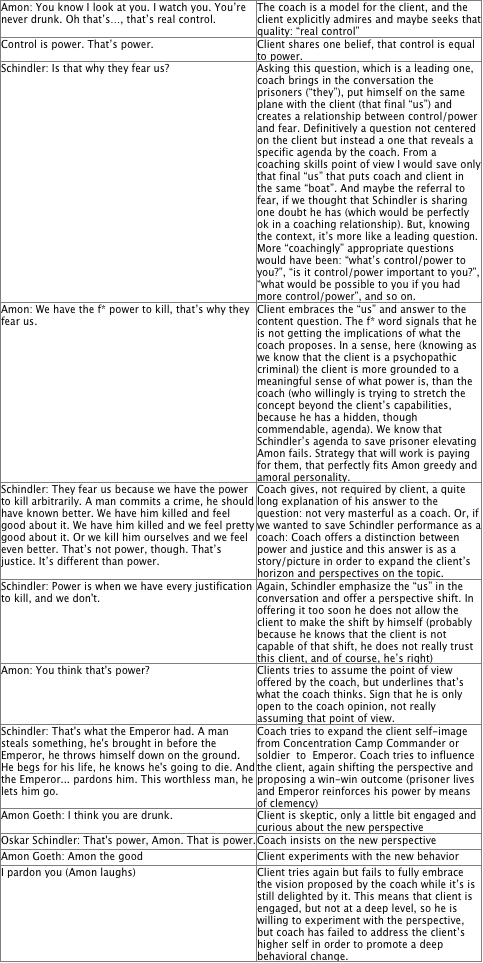 In honor of the ICF's International Coaching Week, I'm sharing the Top Ten Lessons I learned from Thomas Leonard, founder of the ICF (and IAC) and Father of Professional Coaching. Studying with Thomas in the years before his passing in 2003, changed my life in profound ways. Perhaps you'll share how Thomas shaped your life in the Comments section, below.
In honor of the ICF's International Coaching Week, I'm sharing the Top Ten Lessons I learned from Thomas Leonard, founder of the ICF (and IAC) and Father of Professional Coaching. Studying with Thomas in the years before his passing in 2003, changed my life in profound ways. Perhaps you'll share how Thomas shaped your life in the Comments section, below.
Top Ten Lessons Learned From Thomas Leonard:
1. When changing career paths, it's always nice to have a role model: Thomas, philosopher and entrepreneur, has been one of my favorites (I'll mention a few more in this post). One of my original realizations, upon joining his first coaching school and receiving the famous 16-pound-box-of written-materials, was: "This guy is a lot like me, only he's much better at it. I can really learn from him!"
Today, Thomas is practically worshiped by his former clients and students, so I want to emphasize that he was a lot better at it than I, but in discovering his content creation strategies (finer points below), I was able to make the shift from, 'smart person with lots of potential', to massive content creator, myself.
Thomas, an incredibly prolific creative genius, was frequently asked, 'When do you sleep?'. No one believed him when he replied, 'Eight hours every night.' I knew I was hitting my stride when people started asking me when I slept and I replied, 'Eight hours every night,' and knew it was actually true.
2. How to handle 'Too Many Ideas' syndrome: Creative entrepreneurs commonly suffer from an overabundance of ideas. The classic advice on how to handle that is: finish one project before you start another. That's creative suicide for some of us. Thomas' advice? To paraphrase: If you have eleven ideas, start all eleven and see which ones people respond to. Then finish those. The result? You're there with the right idea at the right time for the right people. Instead of arbitrarily amputating your own creativity, you've collaborated with your clients to create what they really want. Magic!
3. To focus those 11 ideas even faster: crowdsource them. Ask your best customers what they most need from you now and how they'd like it delivered, even how much they want to pay for them (Remember t's R&D Team?). Result? You learn faster what your market wants and can develop those ideas beyond what everyone else is doing. Caveat: you need to be extremely good at asking the right questions to make full use of this one.
4. To get more done faster: do what you want, when you want to do it. Nobody believes this one, either...until they try it. The first time I experimented with it, I went back to a week-old to-do list after doing whatever I wanted, whenever I wanted to do it for several days. Funny thing: I discovered I'd finished most of the items on the list, without even thinking about it and I never felt 'busy'. How does that work? Instead of forcing myself to do stuff on schedule, I did it when the mood struck. Suddenly, TV time became business-building time (if I felt like it) and late-night downtime sometimes became creative inspiration sessions. So long as I got my 8 hours, I was able to crank out way more work without ever feeling overworked (See item #1 above).
5. To stop blaming people: Get that people are doing their very best even when they clearly aren't. This one hit me like the proverbial ton of bricks. How could I have ever been unaware of this (paradoxical) fact? Once you get this, you're free of the the 'blame and be blamed' game. The challenge is to get it even when you're mad at someone. But that's the evolutionary part, as well as the secret to greatness.
6. To get that everything is perfect: Ask yourself, if everything is perfect, what's perfect about this? Spiritual teachers tell us it's all perfect. That's nice, but it sure doesn't seem that way sometimes. The trick is not to force yourself to believe this (or pretend that you do), but to stay curious. Okay. So what's perfect about this (crummy) situation? It's is not a Pollyanna exercise. If you look deeply enough, you'll find a perfection that heals the whole problem, if you allow it.
7. The ultimate coaching tool: is Values. Actually, Thomas never said this, that I know of, but he's the one who taught me about the value of Values. And it has become increasingly clear to me over the years. Tony Robbins has his Needs and Donald Clifton has his Strengths, but Values are what matter most to people and they are the key to what matters most in coaching. Apparently both the ICF and IAC agree, because their certifiers look for values-based coaching conversations in the coaches they certify.
8. The relationship between coaching clients and what they really want: is they've often never even met. That's why Thomas put so much emphasis on his Clarifiers, a list of 15 this-or-that questions that quickly uncover what matters most right now. Some coaches think the ICF violates this, because ICF certifiers look for evidence that the coach, not only asks what the client wants at the start of a coaching session, but that s/he checks in at least twice to see that they are on track, relying on the client to articulate what it. The IAC style is a bit different; they look for evidence that the coach is uncovering what the client really wants, even if that takes up most of the session. Contrary to popular belief, these two styles of coaching aren't mutually exclusive. When we take a both/and approach and integrate these two approaches, we upgrade coaching and enter the zone of master coaching.
9. What coaches really do during coaching: is design environments that empower success. It's not enough to foster insights in the client. It's also not enough to plan client actions. Our real job is to co-design the client's environment to evolve them into the person they need to be to reach their goals. That's a big difference.
10. What marketing is really for: helping people learn. No, it's not about squeezing your list through a funnel. When people learn from you, they become more. That's irresistably attractive. No more squeezing. Help your followers learn the next thing they need to know, or help them become the next iteration of themselves. People want to be more. Both your marketing and your sales should help them with that. Some of them will pay you for a highly personalized version of it.
BONUS: To write content that is easy, fast and fun: Write in Thomas' favorite format, the Top Ten List.
Got a favorite lesson learned from Thomas? I'd love to hear it.
Want to get to know Thomas better? Sign up for the FREE 28 Principles of Attraction ecourse, based on his own notes for his signature personal development program:





 Written by
Written by 




 In honor of the ICF's International Coaching Week, I'm sharing the Top Ten Lessons I learned from
In honor of the ICF's International Coaching Week, I'm sharing the Top Ten Lessons I learned from 








 If you've read blog posts on how to become a successful coach, you know that building your marketing list is a must.
If you've read blog posts on how to become a successful coach, you know that building your marketing list is a must.

